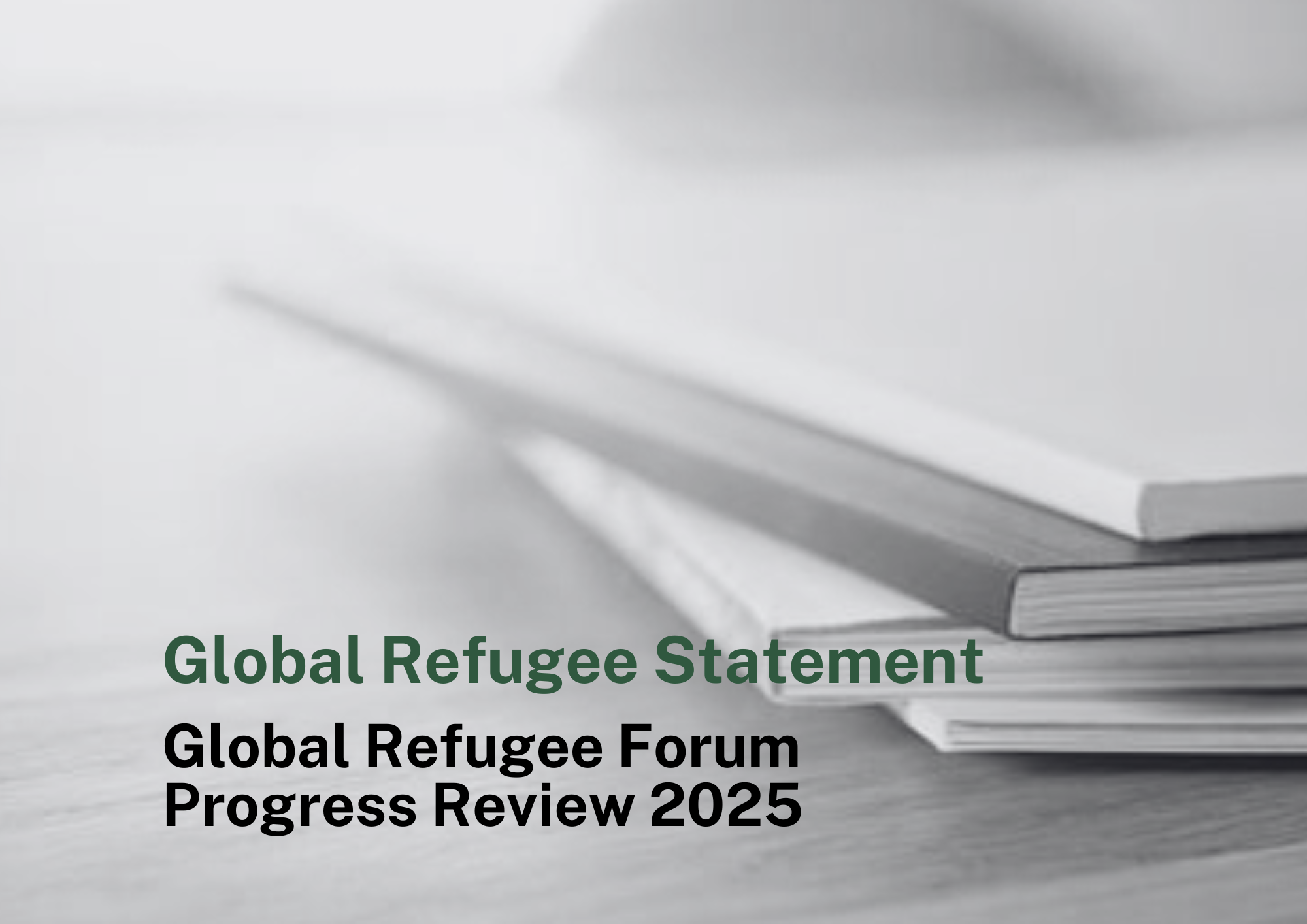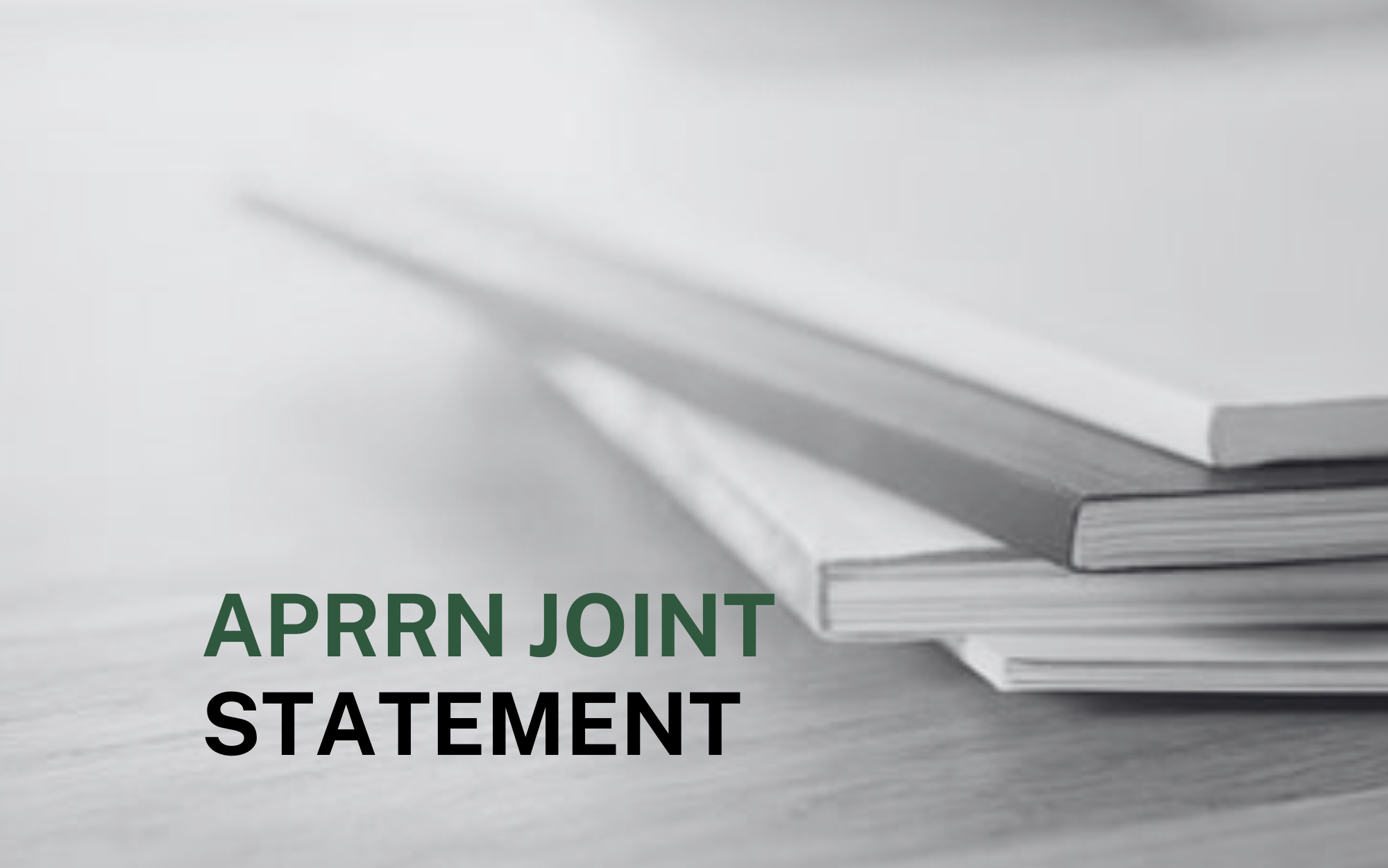URGENT STATEMENT: Malaysia Must Pursue Alternatives to Immigration Detention for Children Immediately
8 December 2020
The Asia Pacific Refugee Rights Network (APRRN) is a network of 430+ civil society organisations and individuals from 29 countries committed to advancing the rights of refugees in the Asia Pacific region. APRRN aims to advance the rights of refugees and other people in need of protection through joint advocacy, capacity strengthening, resource sharing and outreach.
Media Contact
Janeen Sawatzky, Programme Coordinator, APRRN
Tel: +66 (0) 98 252 5102 Email: janeen@aprrn.info Fax: +66 2 234 2679
Themba Lewis, Secretary General, APRRN
Tel: +66 (0) 99 481 1595 Email: themba@aprrn.info Fax: +66 2 234 2679
The Asia Pacific Refugee Rights Network (APRRN) calls on the Malaysian government to stop the detention of children, regardless of their status or documentation, and to instead pursue alternative community placements and grant UNHCR timely access to detention facilities.
Children should first and foremost be seen as children, beyond their nationality or status. As caring people, we ought to treat children the way we would want our children to be treated if they were one day faced with a similar situation. Under no circumstances should authorities consciously expose children to harm. APRRN urges Malaysia to follow examples of its neighbours, Thailand and Indonesia, in halting the detention of children on immigration offenses and providing an appropriate alternative placement of children through community-based care.
Through Malaysia’s parliamentary sitting in November, it was revealed that, as of 26 October 2020, 756 children were being held in immigration detention centres nationwide. Out of the 756 children detained, 405 of them were being held without their parents or guardians.
Further, since August 2019, UNHCR has been denied access to the detainees in immigration detention centres. By denying UNHCR access to the detention centres, Malaysia risks engaging in refoulement, sending people owed international protection back to persecution or increasing overcrowding in detention centres and detaining people for years. The denial of UNHCR’s access to detention centres began seven months before the Movement Control Order (MCO) took effect and can therefore not be explained by public health concerns.
Malaysia, although not a party to the 1951 Convention Relating to the Status of Refugees, is a party to the UN Convention on the Rights of the Child (CRC) and thus is obligated to protect the rights of all children, including refugee children and asylum-seeking children. The detention of children on immigration grounds, often in “overcrowded cells and inhumane conditions”, as reported by Malaysia’s National Human Rights Commission (SUHAKAM), is shocking and a clear violation of the CRC, as well as Malaysia’s own Child Act of 2001. Furthermore, SUHAKAM has observed throughout detention visits that many unaccompanied children are detained with adults, a practice that increases the risk of abuse and illtreatment of children. The Child Act provides that protection of the state should be afforded to all children regardless of their status, which includes placement and care in a safe community-based setting.
To date, Malaysia’s Ministry of Health reported at least a cumulative of 735 positive cases of COVID-19 throughout immigration detention centres nationwide. In a press briefing on 26 May, the Director General of Health acknowledged that the immigration detention centres are “high-risk areas” for the spread of COVID-19.
APRRN reminds the responsible authorities that international legal provisions are clear that detention of persons can only be applied if necessary and proportionate and as a last resort. Migration-related detention of children cannot be considered a measure of last resort and is never in the best interests of the child and, therefore, should always be prohibited.
We urge the responsible authorities to act in the best interest of the detained children by:
- Working closely with its public health experts and civil society organisations to identify detained children and appropriate placement options for families and unaccompanied children currently in detention;
- Agreeing on a standard operating procedure for release of children in detention in consultation with UNHCR and civil society;
- Granting UNHCR timely access to detention facilities;
- Ensuring the implementation of the Child Act 2001 and the CRC by issuing policies and guidelines for prohibiting immigration detention of children.
-END-
Recommended

Dec. 15, 2025
Global Refugee Statement – Global Refugee Forum Progress Review 2025
Around the world, families are running out of places to go. The scale of global displacement remains extraordinarily high, with 117.3 million people forced to flee, not because they chose to move, but because staying meant persecution, violence, or the collapse of their basic rights and safety. Behind every statistic is a person who once had a home, a community, and a future rooted in the ordinary rhythms of life. This reality reminds us that the systems designed to protect people in times of crisis are under severe strain.

Sept. 22, 2025
Upholding Not Undermining International Law Civil Society Open Letter to States
In advance of this week’s UN General Assembly High-level meeting, speeches by Heads of State and Government and reported efforts to enlist UN Member States in an attempt to undo international legal protections for refugees, 271 civil society organisations released an open letter to UN Member States calling on them to uphold, preserve, strengthen, and celebrate international refugee, human rights, and humanitarian treaties—and to reject efforts to undo or undermine legal norms.

July 21, 2025
APRRN deeply saddened by the loss of Ravi Hemadri
For over 25 years, Ravi dedicated his life to community mobilisation, training, advocacy, and research. Our community of practitioners and advocates working on the rights of refugees and other vulnerable people on the move in Asia Pacific has lost a friend and colleague. But his legacy will continue to inspire those who worked with him. Our heartfelt condolences go out to his family and loved ones.